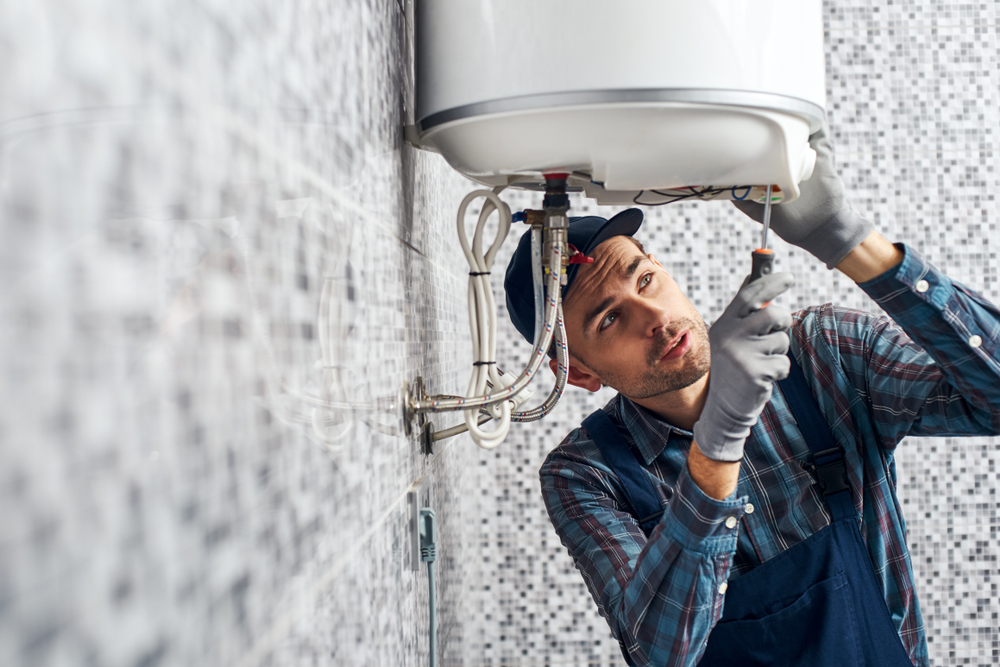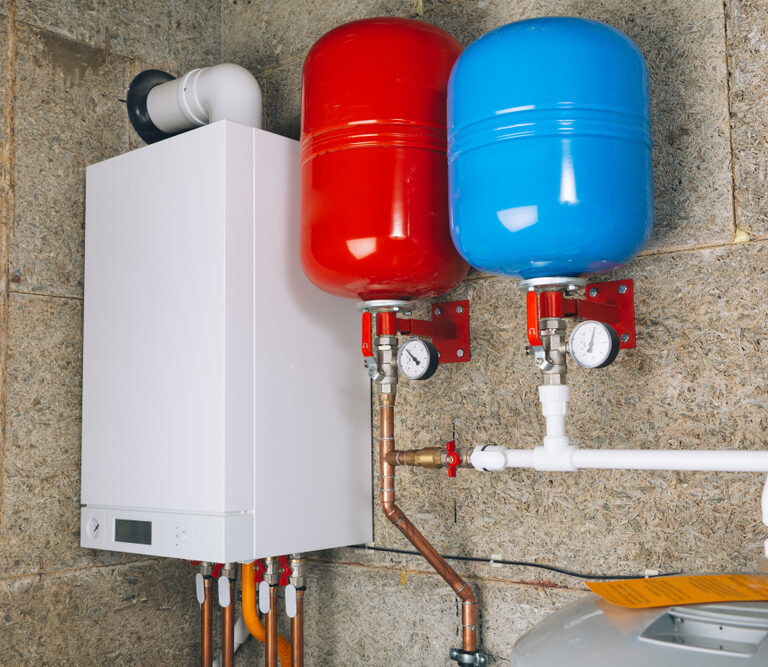Hot water heaters are an integral part of modern society. Without them, you wouldn’t have hot showers or baths. But like other appliances, they don’t last forever. When it comes to replacing your water heater, it’s important to consider how you’ll power your new water heater.
Gas and electric water heaters are similar to one another in many aspects. However, there are some important differences to keep in mind. Let’s take a look at them and see how they stack up against one another.
Costs
When it comes to replacing major appliances, cost is one of the biggest factors to consider. Generally, gas water heaters cost more than electric ones, with gas water heaters costing an average of $100 to $200 more than electric water heaters, on average.
But aside from the price of the water heater itself, there’s a couple of other costs you’ll want to keep in mind. Particularly, installation and operating costs.
Installation
Working with gas and electricity is a risky business, especially if you’re inexperienced. In either case, you can install both yourself. But electric water heaters are simpler and less risky.
If you’re going to need somebody else to install your water heater for you, you need to consider installation costs along with the type of water heater you plan to get. You also want to consider what type of water heater you currently have.
For example, if you currently have an electric water heater, but you want to switch to gas, then you’ll need to run a gas line and create a vent. This means you’re going to pay more money than simply swapping out an old water heater for a new one of the same type and style.
Operating Costs
Typically, gas water heaters are cheaper over the lifetime of the heater than electric ones. Despite the fact that electric water heaters are actually more energy-efficient than gas-powered ones, gas is usually cheaper than electricity in most areas.
Of course, this isn’t always true. If you power your home with renewable energy, such as solar panels, then that might not be the case. Also, some areas offer tax credits for using electric water heaters.
Size
The size of the water heater is another important factor to consider, for a couple of reasons. First, you want a heater that will meet your home’s hot water demands. Both gas and electric water heaters are available in a variety of tank sizes.
However, even at a given tank size, gas water heaters are usually larger than electric models, due to the components they need to heat the tank. They also require ventilation, meaning you’ll need a space large enough to accommodate a vent as well as the increased size.
Meanwhile, electric water heaters are generally more compact, and don’t need ventilation. However, they have their own drawbacks, particularly when it comes to hot water availability.
Hot Water Availability
Having hot water when you need it is important, especially when you have a full house. If you live in a house with a lot of people, and you can’t upgrade to a larger water heater, then you need to consider recovery time.
Gas water heaters have a quicker recovery time (30 to 60 minutes) than electric ones (1 to 2 hours). And since size correlates to recovery time, it means that a larger tank will take more time to recover than a smaller tank.
Another thing to consider is power outages. Gas water heaters keep working, even when the power goes out. Electric water heaters, on the other hand, stop working when the power does. If you live somewhere prone to power outages, you might want to keep this in mind.

Maintenance
Both gas and electric water heaters require routine flushing to prevent mineral and scale buildup that can impede the performance and limit the lifespan of the heater.
However, gas water heaters also require routine inspection of the gas lines that run to them to ensure safe operation. And since gas water heaters require ventilation, you may also need to occasionally clear the vent to provide adequate ventilation.
Safety
Safety is another important factor to consider, especially if you have the luxury to choose between gas and electricity.
Since gas water heaters utilize gas to power the heater, you run the risk of dealing with a gas leak somewhere down the line. You also have to make sure the vent stays clear. If not, the noxious gases, like carbon monoxide, that are normally vented out of your house, can back up into your home and create a serious threat to your health.
Electric water heaters are certainly the safer of the two. Without any gas running to them, and no need for ventilation, electric water heaters offer a degree of safety gas heaters just can’t match.
Environmental Impact
When it comes to gas vs. electric water heaters, you may also consider the impact your water heater has on the environment.
Electric water heaters are definitely safer for the environment than their gas counterparts. Despite the use of coal and other fossil fuels to generate electricity, you do have the option to use a renewable resource, such as solar or wind energy.
As the world moves towards using cleaner sources of energy to create electricity, you may also find that your utility company is making strides towards providing electricity generated by renewable energy sources.
There are also solar water heaters, which – while expensive – allow you to utilize the power of the sun to heat your water for you. When it comes to gas water heaters, however, there are no renewable alternatives to power them.
Tank vs Tankless Water Heaters
Now that we’ve looked at the differences between electric and gas water heaters, let’s take a look at two of the most popular styles of water heater: tank and tankless.
Storage Tank Water Heaters
Storage tank water heaters are the most common type of water heater on the market, and the kind you’ll find in most homes. As the name suggests, they are large, insulated tanks that have a heating element to heat the water pumped into the tank.
Because of the way tank water heaters work, they limit the amount of hot water available to you at any given time. That means that once you run out of hot water, you’ll need to wait for the tank to heat back up.
Since tank water heaters are so common, they’re also the cheapest upfront. However, they tend to use more energy over time than their tankless counterparts. They also have a shorter average lifespan, usually between 8 and 15 years.
Tankless Water Heaters
While less common than tank-style water heaters, tankless water heaters – also known as “on-demand water heaters” – are gaining popularity. Because they heat water on the fly by using super-heated coils, an appropriately-sized heater can create a limitless supply of hot water.
Tankless water heaters are smaller than tank-style heaters. They also require less energy and water than their tank-style counterparts, offering energy savings of up to 34% over traditional tank-style heaters. Tankless water heaters also last longer, with an average lifespan of 20 to 25 years.
Of course, all of these benefits come at a cost. First, tankless water heaters are much more expensive than tank-style heaters. They’re also finicky when it comes to having adequate water and energy input, meaning you may require upgrades to your water and gas or electric lines to properly power them. Tankless water heaters also often require more maintenance than their tank-style counterparts, as mineral and scale buildup can clog the system.
Wrapping Up
Making a major purchase is never easy, especially when you have so much to consider. When choosing between gas and electric water heaters, you should consider the costs, benefits, and drawbacks of each style. And remember that, no matter what style of water heater you end up choosing, the grass isn’t always greener on the other side
Making a major purchase is never easy, especially when you have so much to consider. When choosing between gas and electric water heaters, you should consider the costs, benefits, and drawbacks of each style. And remember that, no matter what style of water heater you end up choosing, the grass isn’t always greener on the other side.
